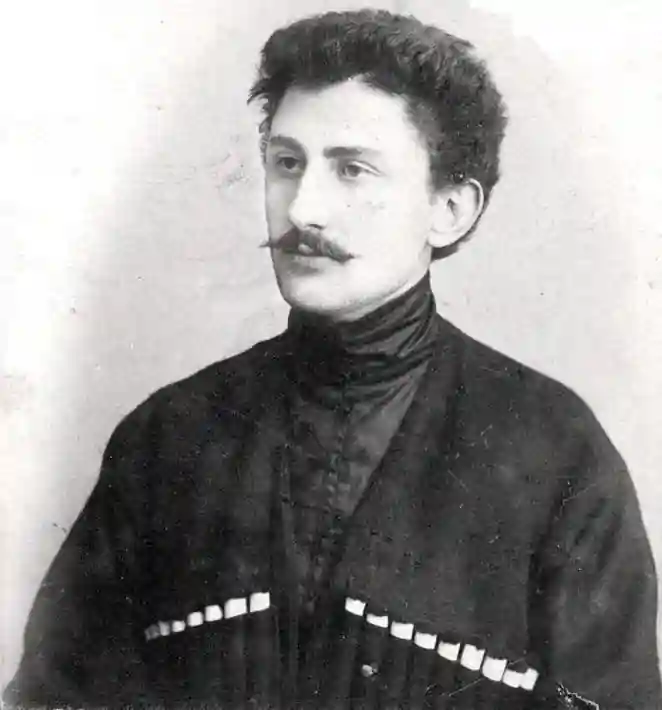Georgia: 150 years have passed since the birth of prominent Georgian writer and social activist Shalva Dadiani. Georgian Ministry of Culture and Sports honors Shalva Dadiani’s outstanding contribution to the history of Georgian culture.
Shalva Dadiani was born on 21 May 1874, in Zestaponi, western Georgia, into the family of a writer and translator, Prince Nikolaoz Dadiani, a member of the Dadiani noble family, and his wife, Princess Lydia Tsulukidze. He had a sister, Princess Mariam Dadani.
Shalva Dadiani was a versatile achiever known for her rich biography: poet, prose writer, translator, playwright, publicist, actor, and director.
Father: Nikoloz Dadiani, a descendant of the Prime Minister of Samegrelo, writer, and social activist; Mother: Lida Tsulukidze, a woman known in literature. He was orphaned by his mother earlier. Father was not admitted to school in protest against the justifying policies of the then education system. He got an education from teachers who invited him home. Because he did not have a school certificate, he was refused admission to Moscow University.
Literary achievement: Since the age of twelve, he has been editing his own handwritten magazine, Adolescent. During six years, up to forty numbers were collected. The eighteen-year-old published the first collection of poems, Spark. He was twenty-two years old when Ilia’s Iveria published his first story, “Holy Tears.” His play Tetnuldi was a successful attempt to revive the genre of tragedy in Georgia.
The first historical novel in Georgian literature of the Soviet era is Shalva Dadiani’s “Unfortunate Russian,” which, due to censorship, was changed title and called “George Rus.” The play “Yesterday” was presented by director Temur Chkheidze in 1972 at Rustaveli Theater with an original interpretation. It is worth noting that these works, distinguished by their dramatic skills, are still relevant, and the Georgian theater has yet to show interest in them.
Shalva Dadiani’s memory book What I Remembered is part of the “Golden Fund” of Georgian Memoir Literature.
Theatrical achievement: Kote Meskhma invited him back in 1893 to the Kutaisi Theater, where he played an episodic role in “Margarita Gottie.” He arrived in Moscow in 1903, and even though he was not admitted to the university, he stayed there for at least two years. Get to know the theatre life there. Wrote reviews and sent them to Georgia.
In 1905, he returned to Tbilisi and joined Valerian Gunia’s team.
In 1907, together with Vladimir Alexi-Meskhishvili, he was in charge of Kutaisi Theater, where several performances were staged, including “Motherland.”
In 1908, he created “Traveling Das”, with which he first went around the whole Georgia, and then performed in Baku and Novorosiisk.
Over 30 years, he played 300 roles, including Otar-Begi (“betrayal”), Shah Abbas (“Ketevan Tortured”), Carl Moore (“Robbers”), and Svimon Leonidze (“Motherland”).
In 1923, he was awarded the People’s Artist of Georgia title.
Community outreach: headed the actors union. In 1950-1959 he was the chairman of Georgian Theater Society.
Shalva Dadiani died on March 15, 1959. Buried in the Pantheon of writers and public workers in Mtatsminda.




